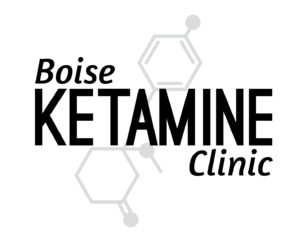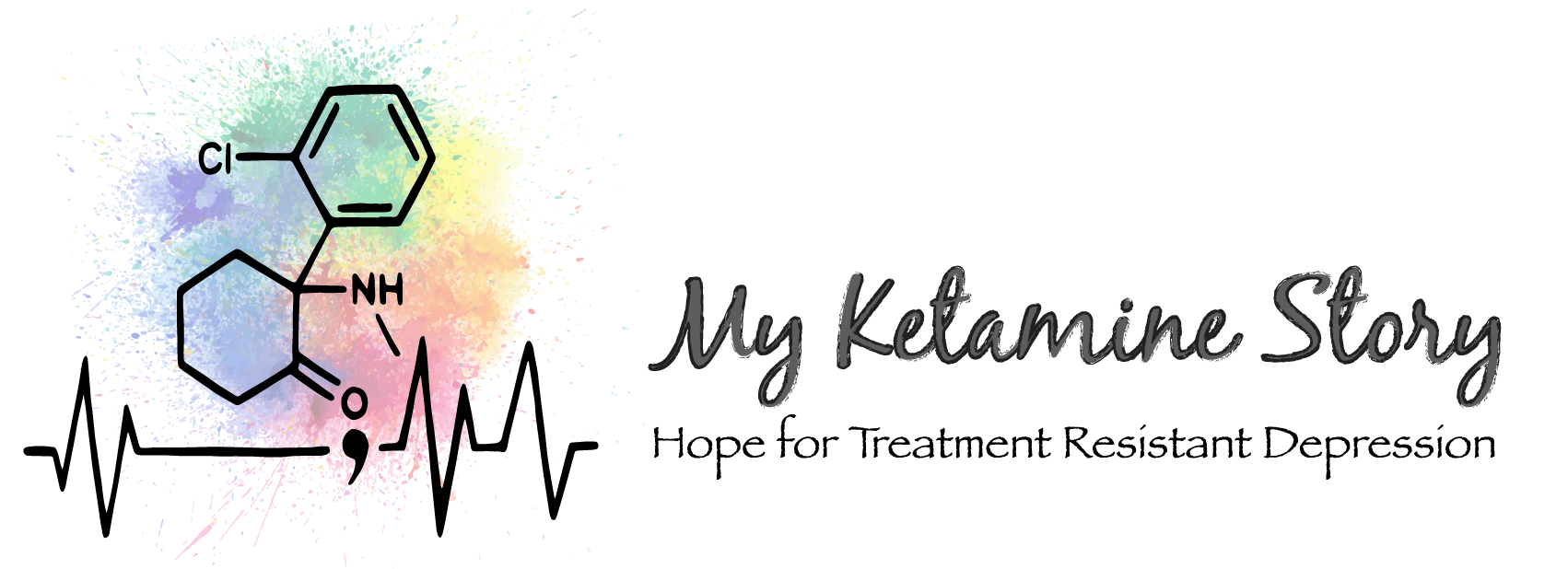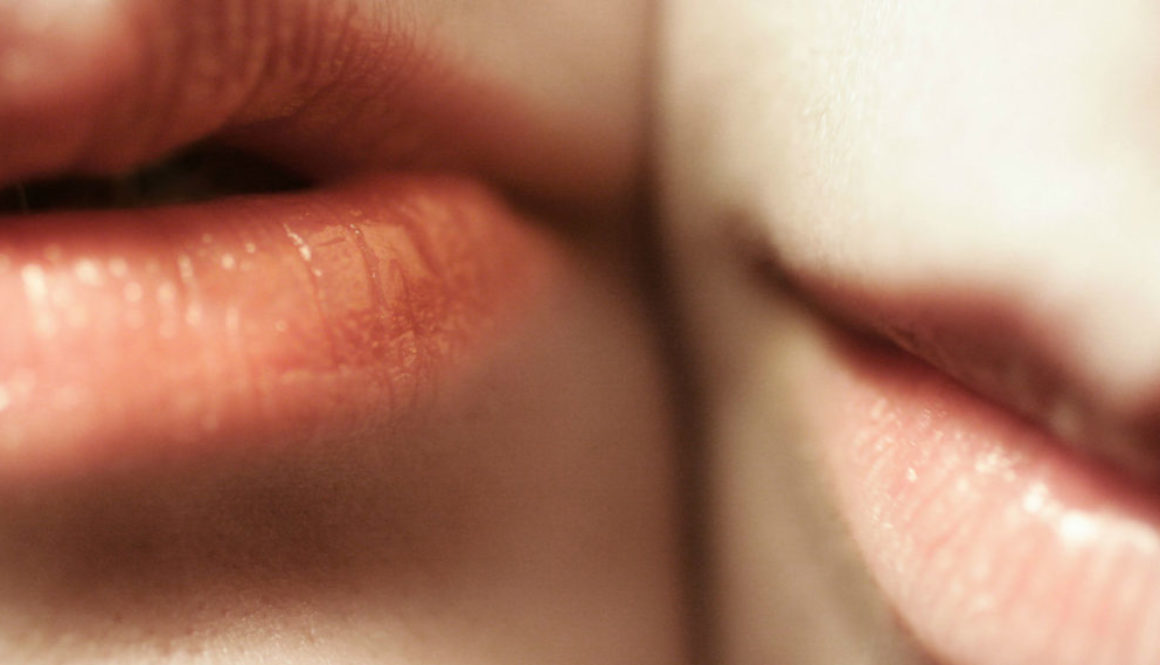Ketamine Therapy: Does Age Make A Difference On The Success of Treatment?
Hello again. This is Susan from myketaminestory.com. Welcome to my Ketamine blog for the Boise Ketamine Clinic website. I am excited to have another platform on which to share my experience with Ketamine treatments, in hopes of educating others on the potential this drug has for helping those, like me, with Treatment Resistant Depression (TRD).
As a brief summary for those new to my blog, I write about my experiences and journey with Ketamine Therapy on my personal website, The Injection and Infusion Clinic of Albuquerque, and of course for The Boise Ketamine Clinic. I have a long history with treatment resistant depression and anxiety disorders. My personal mental health care resume includes numerous failed medication cocktails, ECT, Cognitive Behavior Therapy, Talk Therapy and hospitalizations. I admit I understand how all of these treatments could potentially help, but they never did for me. It was a little over two and half years ago that I was introduced to Ketamine for depression. I am alive today because of a drug that is raising many questions and concerns from the professional world.
I have often wondered if age has any relevance on how ketamine therapy is utilized.
I know for me, it was several decades before I found ketamine for treatment-resistant depression. I had tried numerous treatments in the past. I have written in the past about the many forms of therapy I have tried during my search for a successful treatment. These treatments include psychotherapy, art therapy, music therapy, animal therapy, basically I tried every kind of therapy you can think of really.
Without lasting results.
Throughout my life, I really tried hard to locate some kind of treatment that could lift the symptoms of my depression, in order for me to feel like life was worth living. I can say that before Ketamine, that in most instances, I haven’t felt that life was worth all the struggles. I constantly had to go through war zones in order to figure out a way to alleviate the pain that depression causes me.
I question.
How would my life have been different if I had found Ketamine for Treatment Resistant Depression years ago? I can’t realistically say. Life is unpredictable. I do, however, feel the need to reflect.
I inquire within.
Lost.
I would have loved to discover Ketamine decades ago, but it wasn’t an option. I had a vast array of life experiences and failed treatments before Ketamine was a common word spoken in my household.
I have had years and years of depression and anxiety. I’ve had many doctors attempt to treat me without any lasting success.
I searched and dug.
Nothing.
I have been under the care of several different doctors over the years, trying to locate that one treatment that would help me. Without success. It was during these lost years that I put in place unhealthy coping strategies. I found myself often trying to self-medicate with alcohol. I reached out and found that I have abused food for comfort. I can admit that I have used people for distractions. I have even implemented excessive exercising as an escape. I have tried many methods to alleviate my depression.
I have decades of bad habits that I formed in order to cope with my depression. I feel that maybe the longer that you have suffered with Treatment-Resistant Depression without improvements can jeopardize long term recovery.
Over the years, I have put in place all the different types of treatments plans, coping strategies, and insights from my psychotherapy trying to understand depression, my depression. In the past I have spent much time trying to figure out how I played a part in all the craziness that’s inside my head.
I have always felt like I was behind an 8-ball; like there was nothing I could really do in order to lift my depression.
I couldn’t drink enough.
I couldn’t exercise enough.
I couldn’t eat enough.
I couldn’t talk enough.
I couldn’t cry enough.
The depression was winning.
I felt like I just couldn’t do enough.
I wanted to have all the control, and I didn’t; and I don’t. On many levels, I don’t understand. I don’t understand why I felt depressed and anxious when nothing warranted the feelings. I didn’t get why I was plagued by this heaviness, this deep desire to end my life. I think it’s when you put years of failed treatments to get better that you start to doubt that you ever will get better. I know this was true for me. I imagine it’s true for others.
I know that when I found Ketamine as a form of treatment for my depression, I didn’t have high hopes. However, it remarkably surprised me with its ability to lift, consistently, my symptoms of depression. Ketamine switches off my depression filters. You know, those filters that make it impossible to process information the same way others do? Ketamine allows me the luxury of clarity.
I know that processing information continues to be an issue for me. I think that when you spend years and years utilizing different techniques, medications, and trying different methods for lifting the depression and the suicidal thinking without success, you start to second guess that you will ever get better. I know I doubt it. I doubted it. I started to question everything. The biggest problem I kept encountering was whether or not I even had anything wrong with me. I started to believe that I was causing my own suffering. I was at fault. It was because I was a horrible person that I was being punished; daily. I’m sure other people have felt this way as well. I’m sure I’m not unique or special in my outlook on my mental health.
What I do know is it makes sense that if you have spent so many years trying to find a solution to your problem that you will fail at times, but hopefully you’ll find some success as well. This has not been my experience in the past. It just hasn’t been. I feel like I kept trying new things and getting the same old results: nothing.
Nothing at all.
I really felt that I was the problem. I think this is a disservice to those of us with mental illnesses. I feel like our society has made it unacceptable, in the past, to talk about mental illness. It was often difficult to get the required help that I needed when I was living in a world of chaos. That’s how mental illness feels for me; chaos in the midst of silence.
It saddens me to look back across my past and see all of the therapies that I’ve tried. The investments that I’ve made in my health. All for the sake of being able to function in the world as though I didn’t have these filters in place. I wanted to live as though my world wasn’t obscured and tainted by darkness and evil.
So, I would have to think that for someone that has spent decades trying to get better, trying to gain control of their life, that during these times they would also implement unhealthy coping mechanisms. This is truth for me.
I have acted out.
I’ve been angry.
I am still angry.
I am hoping that this anger will dissipate as I gain a deeper understanding for the way in which I processed information in the past and how I can change the way in which I perceive my world now that I have Ketamine lifting my depression.
The reason that I mentioned past therapies and coping behaviors is because I feel like the more people that I talk to regarding Ketamine therapy, I am noticing a theme. Maybe. That theme is age related. Is it possible that maybe age makes a difference in how quickly Ketamine repairs the mind. The more people that I converse with about their experience with Ketamine therapy and their recovery process, the more I’m convinced that age plays a crucial element in how Ketamine works.
What I mean by this is, I’m beginning to see a correlation between age and how long Ketamine lasts before needing a maintenance schedule or a single booster. I have asked myself many times why is it that a twenty year old can have six infusions and be able to go three months without needing another infusion or another Ketamine shot.
Why is that?
I mean, wouldn’t you would think that Ketamine would work the same for everyone that has treatment-resistant depression?
I am a firm believer in the fact that Ketamine reduces inflammation. I’m a believer that inflammation is the root of depression. However, I am not sure if the inflammation causes the depression or if depression causes inflammation, but either way I feel the more I learn about depression, my depression, and other people’s depression is that there is definitely an inflammation component to almost every case that I’ve heard about. Granted, I’m not a doctor, I haven’t seen hundreds of cases, but the more I read about Ketamine and have my own experiences with Ketamine to reference, the more I am convinced that age is a factor. I think it is more about the amount of time a person has had to deal with their mental illness.
I am in recovery. I can totally see how Ketamine plays a major part in my ability to function in society.
I have spoken to many people searching for a treatment to help them, and in their investigations they’ve come across my website. I have had several people reach out to me with many questions. It is during these communications that I have discovered questions of my own. I have been fortunate enough to have open and honest discussions with sufferers of all ages. One thing I have noticed is that the younger generation – and keep in mind that I’m 48 – but the younger crowd, the ones in their twenties are responding so well to Ketamine. It has been remarkable to me that they can have 6 infusions and then go months without needing assistance from Ketamine.
That was not my experience. I wish it was. Financially. Ketamine is phenomenal. How great would it be if it It could last months? That has not been my story, but I am always grateful for what Ketamine gives me: symptom free days. It’s perplexing to me that Ketamine can, for some people, last months. I find this to be true for the lucky few. It appears that those that can get relief for more than a couple weeks are in their twenties or early thirties. So, I ask myself why is that? Why is it that Ketamine works so efficiently for some and only mildly for others? What I mean when I say efficiently is that they can go a month, two months, or even three months between boosters of Ketamine. However, there are many of us, like me, that need to have Ketamine once a week or once every two weeks. I’ve given this some thought. I’m always intrigued by the unknown. There is so little known about Ketamine and how it works and why it works.
I know that there is more research and papers being written about the science behind Ketamine However, there are many speculations about why Ketamine works for those that haven’t had any success in the past with other forms of treatments. I have tried many treatments such as ECT, psychotherapy, numerous different medication cocktails, and hospitalizations. All with the hopes of getting better.
I’m not seeing the world so bleakley now. I am seeing hope. I am seeing light and colors. I have a deep desire to want to wake up each morning and start a new day. There have been many mornings in my past that I woke up only to start crying because I had to face another day. There’s a big difference between wanting to start a new day and having to start a new day! I have had many mornings of unstoppable tears because I was still alive and once again I had to go through yet another day of this grueling and unforgiving disease with no relief.
When I tried Ketamine infusions I was pretty excited to discover that it actually worked for me. I didn’t expect it to. I have written about this many times. Without the risk of sounding repetitive, it’s important to understand the depth of my depression and how it affected every aspect of my life. This is very true for many people. I understand that. I realized that I am not alone in this fight, in this war, in this battle to gain back control of my life, of our lives. It’s not an easy task. It’s frustrating, and for me that leads to anger-provoking thoughts and feelings. There have been countless times when I want to give up; even when I feel good. It’s just a lot of work fighting depression and I’m not shy about doing the work. I have been for decades!
I can say that I’m immensely thrilled by the prospect of getting better. I am getting better. It is an agonizing process. A painfully slow progression.
Does it make me irritable?
Yes!
It is hard for me to understand how Ketamine is influencing my life sometimes, but I’ve had a lot of deep Insights and growth over the last three years because of Ketamine. I know in my heart I would not be alive today If Ketamine wasn’t being used to treat depression.
I have written and shared many tips about my discoveries with Ketamine and how it affects my life, but I always come back to the familiar question spinning around in my mind and that is, why is it that I need a Ketamine shot every week or two? I have spoken to a couple of Ketamine recipients who don’t have to get Ketamine as often as I do.
It was because of this question about why some depression sufferers need regular Ketamine maintenance that I started to take notice of who I was talking to, what age they were, and what their history has been. I am interested in what kinds of therapies had they tried. It was during these discussions that I received similar answers from several people that I saw a common theme. It appeared that those in their twenties that have tried Ketamine infusions were having a higher success rate – in terms of how long they could go in between Ketamine treatments. Why is that?
It has been over the last three years and I have determined that the reason that those in their twenties might be more capable of making the period of time between treatments longer. I would love to open this topic up for comments, because I am very curious as to whether I might be on the right path of thought. It could be that the time between their Ketamine therapy is lengthened because they don’t have as many bad coping habits put in place. It could be that they don’t have as many misunderstandings of their emotions due to the fact that they are younger. They haven’t had as many life experiences. They haven’t had to spend decades trying to cope with the depression. It is because of these added years dealing with coping with the depression that you end up having, or you end up putting in place, thoughts and beliefs about your depression; your life.
To get to my point and clarify, I will use an example of an elementary school student learning to study for a spelling test. These young children don’t have a lot of experience with studying, reviewing, and taking tests. They are extremely new at it. They haven’t created bad study habits yet. They don’t have years of failed exams to cause them worry or fear about the next pop quiz in their lives. Right now, for those elementary kids, it’s all about learning how to take an exam. It is about learning to prepare for and how to take a test. Everything is new. They can form good habits and excel. However if that same student didn’t study, didn’t have the support or someone to teach them the best way to approach taking a test, to learn new information, those good study skills can quickly be converted into struggles and anxiety. If a student is not shown the proper way to approach that first spelling test, all subsequent exams will be more difficult.
If you were to take these youngsters, any of them, and teach them positive study habits and special methods of retaining information, I am sure their success on future tests is guaranteed to be significantly better over time. That would surely be my guess. Those that have no support at home or are never taught proper pronunciation or ways in which to go about studying, and they were just left alone in the dark and expected to learn 20 new words just like their classmates, the likelihood of failure is compounded. This is a problem because they were never given the proper tools for readiness. Can we expect them to have the same successes as those that were taught healthy habits for studying? This can be true for all aspects of our lives, not just studying for an exam.
Now take that same student and fast forward ten years. They are now ready to go off to high school. A solid foundation is key. You have two students and both of them were taught differently about how to approach taking a test. These two students are now in high school. We have one peer that had been taught wonderful study habits and have had great successes throughout their education. You also have a student, for whatever reason, who did not get the support they needed. They were not taught with love and guidance. They were, in fact, left to discover how to study on their own. They have had success, but more failures throughout their education.
The same two students are now in college.
Is it possible to now teach excellent study habits to the student that struggled to figure it out on their own?
They have both had ten years of schooling now, and the one that lacked the assistance they needed to learn for years. Can you offer that student support, educational techniques, or special classes in order to catch them up and change their ability to take exams in the future?
I think it’s possible. They have had the unfortunate experience of learning poorly for several years, but it’s not too late.
The reason I feel that it is possible to rewire or reprogram the way they learn is solely due to the number of years they have been utilizing this skill or habit. I feel, if given the proper tools and support, the likelihood of that student improving their tests scores increases. Granted, change can take place quicker for the students when they are in high school than say in college. In college you have years of habits to break, so it may become more difficult to learn healthier, more satisfying ways to approach learning.
Years of exams.
Many attempts to conquer and walk away with an A only to slide by with a C-. This example demonstrates what I think might happen to people with depression that start using Ketamine treatments as an antidepressant.
I do believe that Ketamine therapy is working the same for people, of all age groups. I do. I believe that Ketamine reduces the symptoms of depression. I think the Ketamine works the same at reducing the inflammation of the brain, allowing connections to be made, growth to occur, perceptions to be clarified, and my thoughts slow down; making change possible. These are all positives elements that Ketamine provides for me and many others.
You have a drug that aids in the battle of Treatment Resistant Depression. A drug unlike any past treatments for Clinical Depression. As I have stated multiple times in my writings, Ketamine has been the only medication that has offered me relief from the suicidal depression I felt non-stop. I was very much like that student that learned poor, unhealthy, unsuccessful study habits. I went years trying to utilize those same skills for every aspect of my life without success. I would tweak the lesson to fit the situation. I might approach the problem from a different direction. I would get off one road and hop on to another hoping to find the answers for why I couldn’t experience life the same way many people do in our society that don’t have mental illnesses blocking them. And for me, I continued to go through life with the same disruptive and self-defeating skills with the hopes of one day figuring out where I went wrong. It wasn’t until I started Ketamine therapy that I discovered that I wasn’t the problem. There was actually something wrong with my brain. It seems obvious that a person that is suicidal pretty much their entire lives may have something wrong with their brain, their chemical makeup.
I haven’t always thought that I was the problem, but after many failed attempts at combating the depression with traditional methods, I started to have conflicting beliefs. And unfortunately the illness feeds hungrily on those doubts. I would beat myself up for once again messing up an exam.
If we return to the students beginning their education differently you might be able to see how those unpopular and worthless skills would definitely interfere with your recovery. I went through elementary school, high school, college and many years of freelance education trying to improve myself and adjust the way I see the world and how I take my exams. I had obstacle after obstacle to jump, climb, or walk under. I would switch up my approach, but still the depression filters continued to confuse the lessons.
I have now been out of school for years and yet I was still using the same old patterns. I would think that I was making corrections, and I probably was. The only problem was the chronic suicidal depression was still clouding up my results.
Once again let us return to my example of the student making their way through their education. The individual that received intervention early and was taught the proper way to process information and utilize those facts later may have greater success in their lives. They received the help they needed and responded in a magnificent way.
They can grow and move on.
Flourish.
If that same student was put in special classes with teachers that lacked passion and whom glossed over your mistakes or misunderstandings the outcome may be completely different. I see myself as the student that was seeking new study habits but had no instructor with the correct teachings mending my past errors and disappointments.
Nothing helped.
I continued to search for ways to understand the information presented to me. I taught myself ways of coping but failure followed me for decades. I was not fortunate to find a guide or professor that spoke my language.
Until Ketamine.
Ketamine is my teacher now. I am hearing. I am seeing. I am reprogramming the failed systems from my past. It takes time. Painful time. I have to go back and unlearn those lessons I was sure would benefit me. They did not. I have much chaos to sort through. I now have an excellent counselor in Ketamine. I have walls built many feet deep that I must bulldoze. I have had to rebuild my foundation. Decades of buildings to destroy. I am now building a city from all I am digesting from my master, Ketamine.
I realize that this is a long-winded explanation of why I think age plays a part in how Ketamine helps. I feel that if the person is introduced to Ketamine at a younger age, say at the young age of twenty, they have far less history with life. They don’t have as many hang ups or misconceptions. They have less experience living. They have fewer disappointments to sort through and accept. Could it be this reason that they have a greater possibility of going longer periods of time without needing a booster shot of Ketamine?
I feel those that don’t find Ketamine until they are in their forties or fifties may be at a disadvantage.
Why?
Mainly, I feel that age plays a significant role in how often Ketamine maintenance is needed because of past coping mechanisms and failed treatments. There is history with experiences.
Ketamine, it would be like that struggling student having someone interject themselves into your life at a young age and teach you the proper way to go about taking test, any test, even a spelling test.
You learn.
You grow.
You fail.
You grow.
However, if you have to keep changing your study style in hopes of doing better in school, but it is never explained why what you were doing wasn’t working for you, it could be excruciating and soul crushing. You might keep trying to figure it out. Years of research and trials. It gets confusing. It becomes discouraging.
I suppose that it is not how Ketamine works better for one person over another but more so how Ketamine is perceived. What I mean is, the older you get the more cynical you become about finding relief and success. You have many more years of faulty therapies and medications to taint your recovery. Far too many techniques put in place in order to survive the constant noise and desire for death.
Ketamine offers relief from the symptoms of depression. It does. Understanding life without depression is both rewarding and frustrating. That is probably true for everyone. Ketamine is an aid not a cure. You still have to heal. You still have to do the work. The bonus is that the work you engage in, such as cognitive behavioral therapy, begins to help. I have spent hundreds of hours in various types of therapy over the past three decades and just never felt I was making progress. Ketamine suppresses the depression long enough to benefit and allow recovery to begin. It even gives you a glimpse of your progress, if you pay attention.
I truly believe that if I had been told about Ketamine when I was first diagnosed at the young age of 18 my life may not have been so tragic. Please understand that I am not stating that younger people have it easy. I am just making an observation. If you find Ketamine at twenty you may have less baggage to sort through. It is a matter of time and experience.
Common sense.
Maybe?
Ketamine is an interesting treatment. I am constantly writing and investigating. I have grown. I am making progress. It is just slow, slow, slow. And confusing. I am continuously trying to make sense out of this very untraditional form of antidepressant.
I ask you.
Why is it that some people can go a month or more without a Ketamine booster?
Doesn’t the brain age, and damage occur? Does growth and connections continue every time I am treated with Ketamine? Does age affect the Ketamine and how effective it is and for how long?
Life experiences? Do they play a part?
I would be interested to hear what you think and what your experience has been with Ketamine therapy. Comment below or private message me.
If you are interested in educating yourself on Ketamine therapy for Treatment Resistant Depression, check out the four-part series I wrote answering questions about Ketamine use, based on my experience with Ketamine therapy over the past 2.5 years, for The Injection & Infusion Clinic of ABQ.
My first blog, Ketamine: Addressing Questions & Concerns focused on my early experience with Ketamine Infusions.
In part two of the series, Addressing Questions & Concerns About Ketamine Therapy for Treatment Resistant Depression I addressed questions and concerns about Intramuscular Ketamine verses Ketamine Infusion therapy.
In my third blog, Frequently Asked Questions: Redefining Depression With The Assistance Of Ketamine Therapy, I was a bit more random. I had emails with several questions and themes, and I addressed as many inquiries as I could.
In my final question and answer dialogue, Pondering Concerns & Questions: The Benefits Of Ketamine For Treatment Resistant Depression, I discussed research, clinical studies, and the need for changes to occur within our insurance companies and federal government so that maybe one day Ketamine will not be so difficult to afford or obtain, from any qualified professional.
I hope these personal blogs from a patient that suffered for over four decades with treatment resistant depression will be helpful in convincing you why Ketamine could help you. Also, if you would like to become a provider of Ketamine Therapy try enrolling in The Ketamine Academy‘s online Ketamine Infusion Therapy training course; it is an excellent decision. The Ketamine Academy online program will surely benefit you and the mental health community.
In conclusion, If you know of anyone suffering with treatment resistant depression, like I do, let them know that Ketamine therapy may be an option worth looking into. It has been and continues to offer me relief from my symptoms. If you or someone you know are considering Ketamine infusion therapy, please visit the Boise Ketamine Clinic website for low cost ketamine infusion and injection options. If you are not in the Boise, Idaho area I suggest approaching a local professional and start educating them on the benefits of Ketamine. It doesn’t hurt to ask for what you need. You can also visit my Ketamine Provider & Location List to find a provider in your area.
I have been generating a Ketamine Providers and Locations list and I update it regularly. The provider list can be found here and on my personal website. This list may help you find a clinic in your city or state.
Feel free to visit The Ketamine Academy if you want to become a Ketamine Provider. Think about enrolling in your dream today. If you are fascinated, but not yet ready to commit, I recommend the free trial to help you determine whether you want to invest in yourself and in this is new online ketamine infusion training course. Just think, if you enrolled in The Ketamine Academy your new clinic could easily be added to my directory for the grand opening!
Originally posted on The Boise Ketamine Clinic website.











